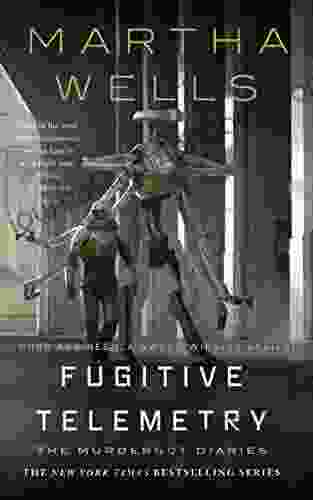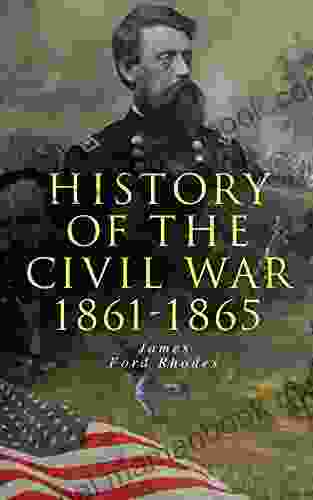The American Civil War: A Comprehensive History of the Conflict (1861-1865)

Prelude to War: The Deepening Divisions
The American Civil War was a complex and multifaceted conflict that tore the United States apart from 1861 to 1865. The war's origins can be traced to the long-standing issue of slavery, which had divided the nation for decades.
By the mid-19th century, the United States was deeply divided over the issue of slavery. The North was largely industrial and anti-slavery, while the South was primarily agrarian and pro-slavery. The election of Abraham Lincoln, a staunch abolitionist, as president in 1860 was the final straw for many Southerners, who saw it as a threat to their way of life.
4.3 out of 5
| Language | : | English |
| File size | : | 2195 KB |
| Text-to-Speech | : | Enabled |
| Screen Reader | : | Supported |
| Enhanced typesetting | : | Enabled |
| X-Ray | : | Enabled |
| Word Wise | : | Enabled |
| Print length | : | 270 pages |
In December 1860, South Carolina seceded from the Union, followed by six other Southern states. These states formed the Confederate States of America, with Jefferson Davis as their president. The Confederacy's formation marked the beginning of the American Civil War.
The Outbreak of War: Fort Sumter
The first shots of the war were fired at Fort Sumter in South Carolina on April 12, 1861. Confederate forces bombarded the Union-held fort, forcing its surrender. The attack on Fort Sumter galvanized the North and led to the outbreak of a full-scale war.
Early Battles and Strategies
The early years of the war were marked by a series of inconclusive battles. The Union had a larger population and industrial capacity, but the Confederacy had the advantage of fighting on its home turf. Both sides adopted different strategies to try to gain an advantage in the conflict.
The Union's strategy was to blockade Southern ports, seize control of the Mississippi River, and capture the Confederate capital of Richmond, Virginia. The Confederacy's strategy was to wear down the Union through guerrilla warfare and attrition, and to gain recognition and support from foreign powers.
The Turning Point: Gettysburg and Vicksburg
The turning point of the war came in 1863 with the Union victories at Gettysburg, Pennsylvania, and Vicksburg, Mississippi. The Battle of Gettysburg, which lasted for three days in early July, was the largest and bloodiest battle of the war. The Union victory at Gettysburg marked the beginning of the end for the Confederacy.
The Battle of Vicksburg, which began in May and ended in July, gave the Union control of the Mississippi River, effectively splitting the Confederacy in two. These two victories gave the Union a major boost in morale and paved the way for its eventual victory.
The Final Years of the War
After the victories at Gettysburg and Vicksburg, the Union began to tighten its grip on the Confederacy. General Ulysses S. Grant led the Union forces in a series of bloody campaigns that slowly ground down the Confederate army.
In 1864, General William Tecumseh Sherman led a Union army through Georgia and South Carolina, burning Atlanta and other cities in his path. Sherman's "March to the Sea" was a major blow to the Confederacy and helped to hasten its defeat.
The Confederacy's Surrender
By early 1865, the Confederacy was on the verge of collapse. Grant's forces had surrounded Lee's army at Petersburg, Virginia, and Sherman's forces were approaching from the south. On April 9, 1865, Lee surrendered his army to Grant at Appomattox Court House, Virginia.
The Confederate surrender marked the end of the Civil War. The war had lasted for four years and resulted in the deaths of over 600,000 Americans. The war also left a deep scar on the nation that would take generations to heal.
The Legacy of the Civil War
The Civil War was a watershed moment in American history. It ended slavery and preserved the Union, but it also left a legacy of bitterness and division that would continue to haunt the nation for decades to come.
The Civil War also had a profound impact on the development of the United States. The war led to the expansion of federal power, the rise of industrial capitalism, and the emergence of the United States as a global power.
The Civil War is still remembered today as one of the most important events in American history. Its legacy continues to be debated and discussed, as Americans grapple with the complex issues of race, equality, and the meaning of freedom.
Additional Resources
* [The American Civil War Museum](https://www.civilwar.org/) * [The National Park Service: Civil War Sites](https://www.nps.gov/civilwar/index.htm) * [The Library of Congress: Civil War Collections](https://www.loc.gov/rr/program/bib/ourdocs/civilwar.html)
4.3 out of 5
| Language | : | English |
| File size | : | 2195 KB |
| Text-to-Speech | : | Enabled |
| Screen Reader | : | Supported |
| Enhanced typesetting | : | Enabled |
| X-Ray | : | Enabled |
| Word Wise | : | Enabled |
| Print length | : | 270 pages |
Do you want to contribute by writing guest posts on this blog?
Please contact us and send us a resume of previous articles that you have written.
 Top Book
Top Book Novel
Novel Fiction
Fiction Nonfiction
Nonfiction Literature
Literature Paperback
Paperback Hardcover
Hardcover E-book
E-book Audiobook
Audiobook Bestseller
Bestseller Classic
Classic Mystery
Mystery Thriller
Thriller Romance
Romance Fantasy
Fantasy Science Fiction
Science Fiction Biography
Biography Memoir
Memoir Autobiography
Autobiography Poetry
Poetry Drama
Drama Historical Fiction
Historical Fiction Self-help
Self-help Young Adult
Young Adult Childrens Books
Childrens Books Graphic Novel
Graphic Novel Anthology
Anthology Series
Series Encyclopedia
Encyclopedia Reference
Reference Guidebook
Guidebook Textbook
Textbook Workbook
Workbook Journal
Journal Diary
Diary Manuscript
Manuscript Folio
Folio Pulp Fiction
Pulp Fiction Short Stories
Short Stories Fairy Tales
Fairy Tales Fables
Fables Mythology
Mythology Philosophy
Philosophy Religion
Religion Spirituality
Spirituality Essays
Essays Critique
Critique Commentary
Commentary Glossary
Glossary Bibliography
Bibliography Index
Index Table of Contents
Table of Contents Preface
Preface Introduction
Introduction Foreword
Foreword Afterword
Afterword Appendices
Appendices Annotations
Annotations Footnotes
Footnotes Epilogue
Epilogue Prologue
Prologue Kate Avery Ellison
Kate Avery Ellison Oliver Taplin
Oliver Taplin Alta L Price
Alta L Price Vanessa Kind
Vanessa Kind Francis Jonah
Francis Jonah Cheryl Dozier
Cheryl Dozier Tom Taylor
Tom Taylor Khyiah Angel
Khyiah Angel Lisa Jackson
Lisa Jackson Toby Asplin
Toby Asplin Angela Daniel
Angela Daniel Karla K Gower
Karla K Gower Pierre Alex Jeanty
Pierre Alex Jeanty Hilary Stokes Phd
Hilary Stokes Phd James Hilton
James Hilton J P Cianci
J P Cianci Maryann Gillespie
Maryann Gillespie Sid Oates
Sid Oates Robert Pinsky
Robert Pinsky Eileen Myles
Eileen Myles
Light bulbAdvertise smarter! Our strategic ad space ensures maximum exposure. Reserve your spot today!

 Jeff FosterIntroducing Final Shot: A Captivating Prequel Novella to the Acclaimed Last...
Jeff FosterIntroducing Final Shot: A Captivating Prequel Novella to the Acclaimed Last... Arthur MasonFollow ·8.8k
Arthur MasonFollow ·8.8k Gage HayesFollow ·18.4k
Gage HayesFollow ·18.4k Guy PowellFollow ·2.2k
Guy PowellFollow ·2.2k Jaime MitchellFollow ·2.8k
Jaime MitchellFollow ·2.8k Jesse BellFollow ·9.1k
Jesse BellFollow ·9.1k Max TurnerFollow ·5.3k
Max TurnerFollow ·5.3k Adam HayesFollow ·11.2k
Adam HayesFollow ·11.2k Robbie CarterFollow ·5.2k
Robbie CarterFollow ·5.2k

 Alexandre Dumas
Alexandre DumasFugitive Telemetry: Unraveling the Secrets of the...
In the realm of...

 Caleb Carter
Caleb CarterBlack Clover Vol 25: Humans and Evil - A Journey into the...
Unveiling the Sinister Forces Black...

 Israel Bell
Israel BellHow to Make Offers So Good People Feel Stupid Saying No
In today's competitive business environment,...

 Simon Mitchell
Simon MitchellWrath of Hades: The Children of Atlantis
An Epic Tale of...

 Percy Bysshe Shelley
Percy Bysshe ShelleyStrengthen Your Immune System: Fight Off Infections,...
What is the...

 Clark Bell
Clark Bell10 Things I Wish Someone Had Told Me Earlier
As we navigate through life, we accumulate a...
4.3 out of 5
| Language | : | English |
| File size | : | 2195 KB |
| Text-to-Speech | : | Enabled |
| Screen Reader | : | Supported |
| Enhanced typesetting | : | Enabled |
| X-Ray | : | Enabled |
| Word Wise | : | Enabled |
| Print length | : | 270 pages |










